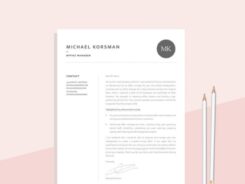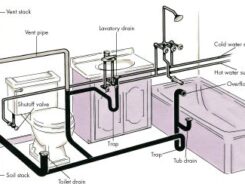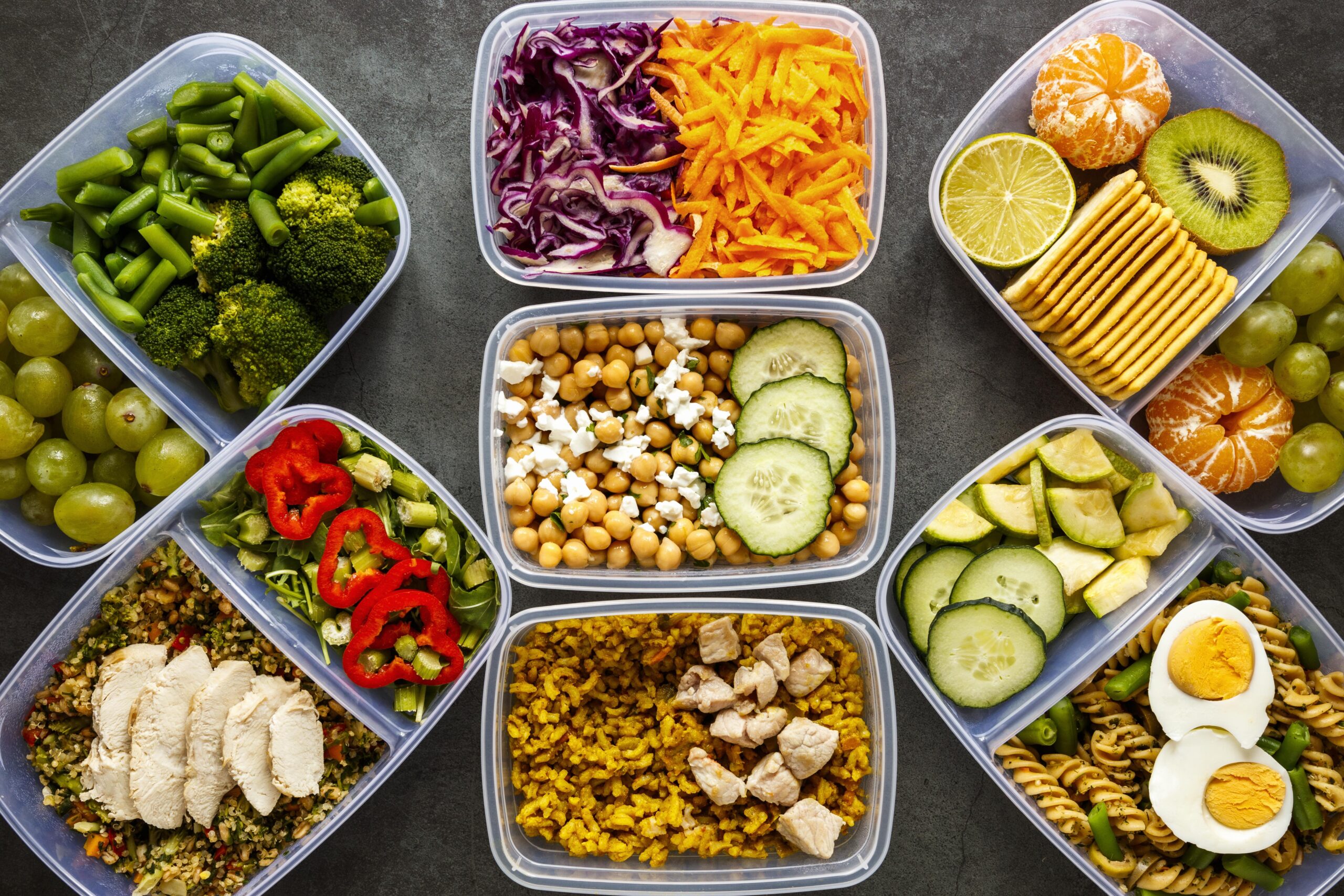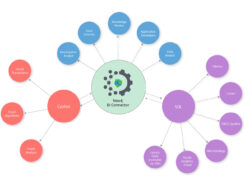Did you know that meal prepping can significantly impact your health and wellness? According to research, individuals who engage in meal prep are more likely to consume nutritious meals throughout the week, leading to better overall health outcomes. In today’s fast-paced world, where time is often limited, meal prep has emerged as a practical solution for busy individuals looking to maintain a healthy lifestyle.
Whether you’re a working professional, a busy parent, or someone juggling multiple responsibilities, including meal prep into your routine can help you stay on track with your health and nutrition goals.
Throughout this blog, we’ll share practical meal prep tips, delicious recipe ideas, and insights on how to streamline your meal prep process for maximum efficiency. From make-ahead breakfasts and convenient lunch options to hearty dinners and nutritious snacks, we’ve got you covered with a diverse range of meal prep solutions to suit every taste and dietary preference. So, get ready to revolutionize your eating habits and embark on a journey to a healthier, happier you with our ultimate guide to healthy meal prep for busy individuals.
Benefits of Healthy Meal Prep: Transforming Your Health and Lifestyle
Healthy Meal prep isn’t just a trend—it’s a game-changer for health, budgeting, and time management. Studies show that individuals who regularly meal prep are more likely to consume nutritious meals, leading to better overall health outcomes. Not only does meal prep save time during busy weekdays, but it also helps in sticking to a budget by reducing the temptation to eat out or order takeout regularly.
By preparing easy and healthy meals in advance, individuals have greater control over portion sizes and ingredients, making it easier to make healthier food choices. This proactive approach to nutrition can lead to improved energy levels, better weight management, and reduced risk of chronic diseases like obesity and diabetes. Also, a healthy diet can result in Normal Blood Sugar Levels.
In addition to its health benefits, meal prep can also be a stress reliever. Knowing that nutritious meals are readily available can alleviate the anxiety and decision fatigue that often accompany mealtime. Instead of scrambling to find something to eat, individuals can enjoy the peace of mind that comes with having a well-planned menu for the week.
Key Benefits of Meal Prep:
- Enhanced control over portion sizes and ingredients.
- Improved nutrition and healthier food choices.
- Time-saving during busy weekdays.
- Cost-effective by reducing the frequency of dining out.
- Reduced stress and anxiety associated with mealtime decisions.
Personal anecdotes and success stories further underscore the benefits of meal prep. From busy professionals to dedicated parents, individuals from all walks of life have experienced the transformative power of meal prep. Whether it’s shedding excess weight, improving energy levels, or simply enjoying more quality time with loved ones, the benefits of meal prep extend far beyond the kitchen.
Healthy meal prep offers a multitude of advantages for health, budgeting, and time management. By embracing this simple yet effective strategy, individuals can take control of their nutrition, reduce stress, and ultimately, improve their overall quality of life.
Essential Healthy Meal Prep Tools and Supplies
Easy healthy meal prep requires the right tools and supplies to ensure efficiency and effectiveness. Here’s an overview of the basic essentials you’ll need for successful meal prep:
1. Meal Prep Containers: Invest in a variety of high-quality containers in different sizes to accommodate various portion sizes and types of meals. Look for BPA-free, microwave-safe, and dishwasher-safe options for convenience.
2. Kitchen Gadgets: Consider investing in time-saving kitchen gadgets such as a quality chef’s knife, cutting board, vegetable peeler, and food processor or blender for chopping, slicing, and mixing ingredients efficiently.
3. Pantry Staples: Stock your pantry with essential ingredients like grains (rice, quinoa), canned beans, canned tomatoes, spices, herbs, oils, and vinegars. Having these staples on hand makes it easier to whip up meals quickly without having to make frequent trips to the grocery store.
4. Organization Systems: Implement organization systems in your kitchen to streamline the meal prep process. Label containers, use stackable storage bins for pantry items, and designate specific areas for prepped ingredients and meals in the refrigerator and freezer.
5. Storing Prepped Meals: After prepping meals, store them properly to maintain freshness and convenience. Use airtight containers for refrigerated items and freezer-safe containers for meals you plan to freeze. Consider portioning meals into individual servings for grab-and-go convenience.
By equipping yourself with the right tools and supplies and implementing efficient organization and storage practices, you’ll set yourself up for meal prep success. With a well-stocked kitchen and a little bit of planning, you’ll be on your way to enjoying delicious and nutritious meals all week long.
Meal Prep Planning and Organization: Step-by-Step Guide for easy healthy meal prep
1. Setting Goals and Creating Meal Plans:
- Start by defining your meal prep goals, whether it’s saving time, eating healthier, or sticking to a budget.
- Assess your dietary preferences, nutritional needs, and schedule to tailor your meal plans accordingly.
- Use meal planning templates or apps to map out your meals for the week, including breakfasts, lunches, dinners, and snacks.
2. Efficient Grocery Shopping:
- Compile a shopping list based on your meal plan to ensure you have all the ingredients you need.
- Consider shopping online or using grocery delivery services to save time and avoid impulse purchases.
- Shop for groceries when the store is less crowded to minimize stress and maximize efficiency.
3. Batch Cooking and Portioning Meals:
- Dedicate a block of time for batch cooking, typically on a weekend or designated prep day.
- Choose recipes that can be easily scaled up and portioned into individual servings for convenience.
- Invest in portion-controlled containers to divide meals into single servings and store them in the refrigerator or freezer.
4. Scheduling Prep Sessions:
- Set aside dedicated time slots for meal prep sessions based on your schedule and availability.
- Break down meal prep tasks into manageable steps and prioritize tasks based on cooking times and ingredient preparation.
- Consider batch cooking staples like grains, proteins, and vegetables to streamline the process and minimize the cooking time during the week.
5. Setting Goals and Creating Meal Plans:
- Identify your nutritional objectives, whether it’s achieving a balanced diet, meeting specific dietary requirements, or reaching health and fitness goals.
- Consider factors like dietary restrictions, food preferences, and portion control when planning your meals.
- Utilize meal planning resources such as recipe websites, cookbooks, and meal planning apps to find inspiration and create diverse and nutritious meal plans.
6. Efficient Grocery Shopping:
- Plan your grocery shopping trips strategically by organizing your shopping list according to store layout and aisle categories.
- Take advantage of sales, discounts, and bulk purchasing options to save money on staple ingredients.
- Consider incorporating versatile ingredients that can be used in multiple recipes to minimize food waste and maximize versatility.
7. Batch Cooking and Portioning Meals:
- Choose recipes that lend themselves well to batch cooking, such as soups, stews, casseroles, and stir-fries.
- Invest in quality storage containers that are microwave-safe, freezer-friendly, and stackable for easy storage and reheating.
- Label your meal containers with the date and contents to keep track of freshness and avoid confusion.
8. Scheduling Prep Sessions:
- Block off dedicated time slots in your schedule for meal prep sessions, making it a recurring appointment to prioritize consistency.
- Break down your meal prep tasks into smaller, manageable steps to make the process less overwhelming.
- Consider enlisting the help of family members or roommates to divide and conquer meal prep tasks, making it a collaborative effort.
By following this step-by-step guide to healthy meal prep planning and organization, you’ll be able to efficiently prepare nutritious meals that support your health and lifestyle goals. With a little bit of foresight and planning, meal prep can become a seamless part of your weekly routine, saving you time, money, and stress in the long run.
Healthy Breakfast Meal Prep Ideas: Start Your Day Right
1. Overnight Oats:
- Prepare individual servings of overnight oats by combining rolled oats with your choice of milk (dairy or plant-based) and toppings like fruits, nuts, seeds, and a drizzle of honey or maple syrup.
- Customize your overnight oats with flavor variations such as peanut butter and banana, mixed berries and almonds, or cocoa powder and shredded coconut.
2. Egg Muffins:
- Whip up a batch of egg muffins by whisking together eggs, vegetables (such as spinach, bell peppers, and onions), and optional add-ins like cheese, cooked bacon, or diced ham.
- Pour the egg mixture into greased muffin tins and bake until set. Once cooled, store the egg muffins in the refrigerator or freezer for a quick and protein-packed breakfast option.
3. Smoothie Packs:
- Pre-portion smoothie ingredients into freezer-safe bags or containers for easy assembly on busy mornings.
- Include a variety of fruits (such as bananas, berries, and mango), leafy greens (such as spinach or kale), protein sources (such as Greek yogurt or protein powder), and liquid (such as milk or almond milk).
- Simply dump the contents of a smoothie pack into a blender, add liquid, and blend until smooth for a refreshing and nutrient-packed breakfast.
Tips for Nutrient-Rich Breakfasts:
- Incorporate protein-rich ingredients like eggs, Greek yogurt, nuts, seeds, protein powder and black seed oil to help keep you feeling full and satisfied until your next meal.
- Boost fiber intake by adding high-fiber foods like whole grains (such as oats or quinoa), fruits, vegetables, and chia seeds to your breakfast recipes.
- Don’t forget about essential nutrients like vitamins and minerals—incorporate a variety of colorful fruits and vegetables into your breakfast meals to ensure you’re getting a wide range of nutrients to support overall health and well-being.
With these healthy breakfast meal prep ideas, you’ll be able to kickstart your day with delicious and nutritious meals that are ready to enjoy whenever hunger strikes. Plus, by prepping your breakfasts in advance, you’ll save time and energy during busy mornings while still prioritizing your health and wellness goals.
Lunch and Dinner Meal Prep Recipes: Wholesome and Flavorful Options
Assortment of Healthy Recipes: Prepare for your busy week with a variety of nutritious and delicious lunch and dinner options. From vibrant salads to hearty one-pan meals, these recipes are perfect for meal prep and will keep you satisfied throughout the day.
Lean Proteins and Whole Grains: Incorporate lean proteins like chicken breast, turkey, tofu, or beans into your meals for satiety and muscle repair. Pair them with fiber-rich whole grains such as quinoa, brown rice, or whole wheat pasta to create balanced and filling dishes.
Plenty of Vegetables: Load up your meals with colorful vegetables to boost nutrition and add flavor and texture. Roast a medley of veggies like bell peppers, zucchini, carrots, and broccoli for easy meal prep, or toss them into stir-fries and salads for a quick and nutritious option.
One-Pan Meals: Simplify your meal prep routine with one-pan meals that require minimal cleanup. Try sheet pan chicken and veggies, baked salmon with roasted sweet potatoes, or a veggie-packed frittata for a fuss-free dinner option.
Salads and Stir-Fries: Get creative with salads and stir-fries by mixing and matching ingredients to suit your taste preferences. Prep a big batch of salad greens and toppings, such as grilled chicken, chickpeas, avocado, and nuts, and assemble individual salads throughout the week. For stir-fries, chop up your favorite vegetables and protein sources and sauté them with a flavorful sauce for a quick and easy meal.
Snack and Dessert Prep Ideas: Indulge Without Guilt
Satisfying Snack Options: Keep hunger at bay with wholesome and satisfying snacks that are easy to prep ahead of time. Whip up a batch of energy balls using ingredients like oats, nuts, seeds, and dried fruit for a nutritious and portable snack. Alternatively, make homemade granola bars packed with fiber and protein to fuel your busy day.
Veggie Sticks with Dip: For a refreshing and nutrient-packed snack, prepare veggie sticks like carrots, celery, cucumber, and bell peppers and pair them with a tasty dip like hummus, guacamole, or tzatziki. This combination provides a satisfying crunch and plenty of vitamins and minerals to keep you energized.
Fruit Salads: For a sweet treat that’s both nutritious and delicious, whip up a fruit salad using a variety of fresh, seasonal fruits like berries, melon, pineapple, and grapes. Add a squeeze of lime juice or a drizzle of honey for extra flavor, and enjoy as a refreshing dessert or midday snack.
Portion Control and Nutrient Density: When prepping snacks and desserts, keep portion sizes in mind to avoid overeating. Opt for nutrient-dense ingredients like whole grains, fruits, vegetables, nuts, and seeds to provide sustained energy and promote overall health. With these snack and dessert prep ideas, you can indulge in your favorite treats guilt-free while still supporting your health and wellness goals.
Meal Prep Tips for Special Diets: Catering to Your Dietary Needs
Guidance for Various Diets: Whether you’re following a vegetarian, vegan, gluten-free, or keto diet, meal prep can still be a breeze with the right strategies in place. Learn how to navigate your dietary restrictions while still enjoying delicious and satisfying meals throughout the week.
Recipe Adaptations and Substitutions: For those with dietary restrictions, it’s important to adapt recipes and make ingredient substitutions as needed. For example, if you’re following a vegetarian or vegan diet, swap out meat-based proteins for plant-based alternatives like tofu, tempeh, or legumes. Similarly, for gluten-free diets, use gluten-free grains like quinoa, rice, or buckwheat instead of wheat-based products. If you’re following a keto diet, focus on incorporating healthy fats, low-carb vegetables, and protein sources into your meals while minimizing carbohydrates.
Resources for Inspiration: Finding recipe inspiration and meal prep support within specific diet communities can be invaluable. Look for online resources such as blogs, social media groups, and forums dedicated to your particular dietary preferences. These communities often share recipes, meal prep tips, and support for navigating challenges associated with special diets. Additionally, consider investing in cookbooks or meal planning apps tailored to your specific dietary needs for even more recipe ideas and guidance.
Planning and Preparing: When meal prepping for special diets, planning and preparation are key. Take the time to create a meal plan for the week ahead, incorporating a variety of nutrient-rich foods to ensure you’re meeting your dietary requirements. Make a shopping list of necessary ingredients and set aside dedicated time for meal prep each week. Consider batch cooking staples like grains, proteins, and sauces in advance to streamline the process and save time during busy weekdays.
Experiment and Enjoy: Don’t be afraid to experiment with new ingredients, flavors, and cooking techniques to keep your meals interesting and enjoyable. Get creative in the kitchen and try out different recipes to discover new favorites. With a little planning and creativity, meal prep for special diets can be both delicious and satisfying, allowing you to nourish your body while sticking to your dietary goals.
Time-Saving Meal Prep Hacks: Making Meal Prep a Breeze
Preparing meals ahead of time can save you hours in the kitchen during the week. Discover a collection of time-saving tips and hacks to streamline your meal prep process and make it more efficient. From quick ingredient prep to clever storage solutions, these hacks will help you save time and effort while still enjoying delicious and nutritious meals.
Strategies for Efficiency: When it comes to meal prep, efficiency is key. Start by organizing your kitchen and workspace to minimize clutter and maximize efficiency. Plan your meals and ingredients in advance, making a detailed shopping list to ensure you have everything you need. Consider batch cooking staple ingredients like grains, proteins, and sauces to save time during the week. Additionally, invest in time-saving kitchen gadgets like a slow cooker or Instant Pot to simplify cooking tasks and cut down on prep time.
Minimizing Food Waste: One of the biggest challenges of meal prep is avoiding food waste. To minimize waste, plan your meals carefully and buy only what you need. Use up leftover ingredients in creative ways by incorporating them into other meals or repurposing them into new dishes. For example, leftover roasted vegetables can be added to salads, soups, or stir-fries, while excess cooked grains can be turned into grain bowls or fried rice. By being mindful of food waste and finding creative ways to use up leftovers, you can save both time and money in the kitchen.
Maximizing Flavor: Make the most of your meal prep by maximizing flavor in your dishes. Experiment with different herbs, spices, and seasonings to add depth and complexity to your meals. Consider marinating proteins in advance to infuse them with flavor, or preparing homemade sauces and dressings to drizzle over your dishes. Don’t forget to taste and adjust seasoning as you go to ensure your meals are delicious and satisfying. With these flavor-boosting tips, your meal prep creations will be bursting with flavor and excitement.
Wrap Up:
Healthy meal prep is a valuable tool for maintaining a nutritious diet amidst a busy lifestyle. By dedicating a small amount of time each week to plan and prepare meals, individuals can enjoy the benefits of improved health, reduced stress, and better budget management. Whether you’re a seasoned meal prepper or just starting out, these ideas and tips can help you create delicious and wholesome meals that support your wellness goals.
FAQs:
- Q: How long can prepped meals be stored?
A: Properly stored prepped meals can typically last in the refrigerator for 3-5 days. However, some dishes may freeze well for longer storage. - Q: Can I customize meal prep recipes to fit my dietary preferences?
A: Absolutely! Meal prep recipes can easily be adapted to accommodate various dietary needs and preferences, including vegetarian, vegan, gluten-free, and low-carb options. - Q: Is meal prep suitable for individuals with busy schedules?
A: Yes, meal prep is particularly beneficial for busy individuals. By setting aside dedicated time for planning and prepping meals, you can save time during the week and avoid relying on unhealthy convenience foods.
















































































